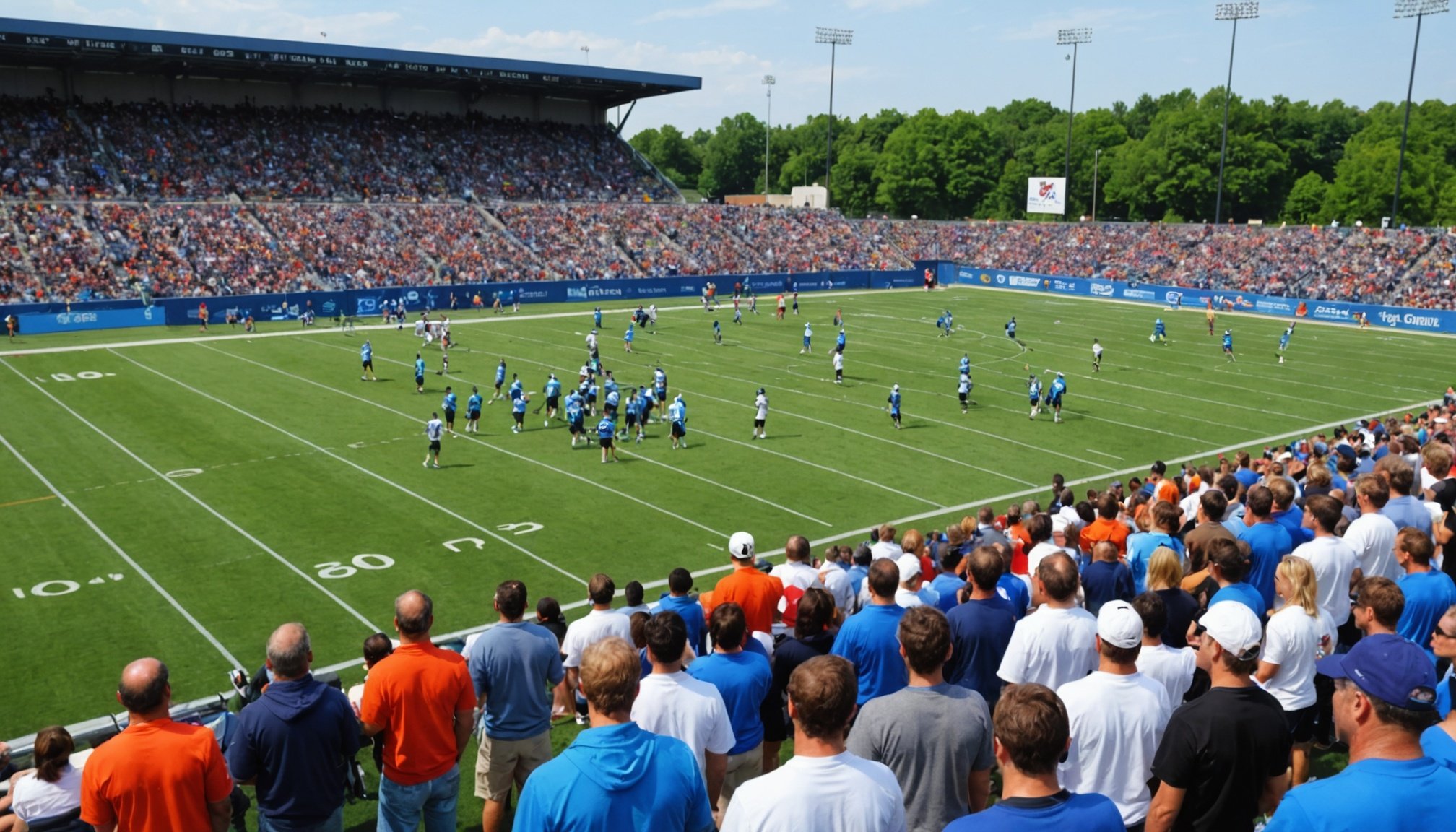Organizing a local sports event can be a thrilling yet challenging endeavor. Whether you are managing a community tournament, a charity run, or a competitive league, various factors come into play to ensure its success. This comprehensive guide aims to provide you with practical insights into event management, planning, and execution tailored for local sports events. By following these best practices, you can create a rewarding experience for athletes, participants, and the larger community.
Understanding the Importance of Event Planning
Effective planning is the backbone of any successful sports event. Without a well-structured plan, even the most enthusiastic organizers can find themselves overwhelmed by the myriad tasks involved. A thorough planning process allows you to establish a clear vision for your event, set measurable goals, and allocate resources efficiently.
Have you seen this : What are the psychological benefits of participating in team sports for young athletes?
Start by identifying the purpose of your event. Are you aiming to promote a local sport, raise funds for a cause, or simply foster community spirit? Once you articulate your goals, the next step is to create a detailed plan that outlines each aspect of the event.
Consider the logistics involved, including securing a suitable venue, scheduling competitions, and arranging for essential equipment. Your plan should also encompass volunteer roles and responsibilities, as they are crucial to the execution of the event.
Also read : Ride the waves: snowboard courses at les deux alpes
Moreover, having a contingency plan is essential. Weather can be unpredictable, and emergencies can arise, so prepare backup solutions for potential challenges. This proactive approach can save you time and reduce stress on the day of the event, allowing your team to focus on delivering an exceptional experience for all.
Selecting the Right Venue for Your Event
Choosing the right venue is critical in the overall success of your local sports event. The venue sets the stage for everything that will take place, from competitions to the overall atmosphere. When selecting a venue, consider factors such as accessibility, capacity, and facilities available.
Accessibility is vital for ensuring that all participants and spectators can reach the event with ease. Ensure that the location is well connected by public transport and has adequate parking facilities. A centrally located venue can draw a larger crowd, enhancing the event’s appeal.
Capacity is another crucial consideration. Assess the expected number of participants and spectators to ensure the venue can accommodate everyone comfortably. This includes evaluating seating arrangements, amenities, and restroom facilities. A space that feels cramped can detract from the overall experience.
Additionally, consider the necessary facilities available at the venue. Does it have the required spaces for different sports? Are there adequate changing rooms, medical assistance, and equipment storage areas? These details significantly impact the smooth running of your event.
Finally, do not underestimate the importance of the venue’s ambiance. A pleasant environment can enhance the event experience for athletes and spectators alike. Take the time to visit potential venues, assess their conditions, and choose one that aligns with your event’s goals.
Building a Strong Team of Volunteers
The success of any local sports event largely hinges on the strength of your team. Volunteers form the backbone of your event, providing essential support in various areas such as registration, logistics, and athlete assistance. Building a strong team of dedicated volunteers is a great way to ensure the effective management of your event.
Start by recruiting volunteers with a genuine interest in sports and a desire to contribute to the community. Leverage local clubs, schools, and community centers to find enthusiastic individuals willing to lend a hand. Clearly outline the roles and responsibilities each volunteer will take on, which will not only streamline event operations but also provide volunteers with a sense of purpose.
Training is another critical component when it comes to volunteers. Hold orientation sessions to familiarize them with their duties, the event schedule, and emergency protocols. Providing volunteers with the necessary skills and knowledge will empower them to perform their tasks effectively and confidently.
Additionally, consider creating a volunteer appreciation program. Recognizing their hard work fosters a positive environment and encourages volunteers to return for future events. Small gestures like certificates, thank-you notes, or even a post-event social gathering can go a long way in maintaining motivation and enthusiasm.
Promoting Your Event Effectively
Promotion plays a crucial role in attracting participants and spectators to your local sports event. Without effective marketing strategies, even the best-planned events can struggle to draw a crowd. Start by defining your target audience and tailoring your promotional efforts accordingly.
Utilize social media platforms to spread the word about your event. Create engaging content that highlights key details such as the date, venue, and participation details. Encourage sharing among community members to broaden your reach. Consider creating an event page on popular platforms where you can post updates and interact with potential participants.
Local media outlets can also be valuable allies. Reach out to local newspapers, radio stations, and community newsletters to announce your event. A well-written press release can capture their attention and provide free publicity, helping to raise awareness among residents.
Engage with local businesses for sponsorship opportunities. In exchange for their support, promote their brand at your event, which can create a mutually beneficial relationship. This partnership not only boosts your event’s visibility but also fosters community involvement.
Finally, consider creating promotional materials such as flyers or posters to display in high-traffic areas. Combining both digital and traditional marketing strategies will enhance your promotional efforts and increase the likelihood of attracting a diverse audience to your event.
Ensuring Smooth Event Execution
On the day of the event, the execution phase is where all your planning and preparation come to fruition. To ensure everything runs smoothly, establish a clear timeline and coordinate with your team of volunteers effectively. Assign specific roles to each team member and ensure everyone is aware of their responsibilities.
Conduct a pre-event briefing with your team to review the schedule, discuss potential challenges, and go through emergency procedures. This not only boosts confidence but also establishes a sense of camaraderie among team members. Having a designated point of contact for any issues that arise can streamline problem-solving throughout the day.
Monitor all aspects of the event closely, including participant registration, equipment setup, and the schedule of competitions. Be prepared to adapt to any changes that may occur, whether it’s a delay in the start time or a sudden equipment malfunction. Remaining calm and collected will help keep the atmosphere positive and enjoyable for everyone involved.
Finally, consider gathering feedback after the event. Engaging with participants and volunteers to understand their experiences can provide valuable insights for future events. This feedback loop not only helps you refine your planning but also fosters a sense of community and engagement among participants.
Hosting a successful local sports event requires careful management, strategic planning, and a dedicated team. By understanding the importance of a robust event strategy—from selecting the right venue to ensuring effective promotion and execution—you set the foundation for a memorable experience for athletes and spectators alike. Remember to embrace feedback and continuously improve your approach with each event. With these best practices, you will not only foster community spirit but also encourage more local participation in sports.











